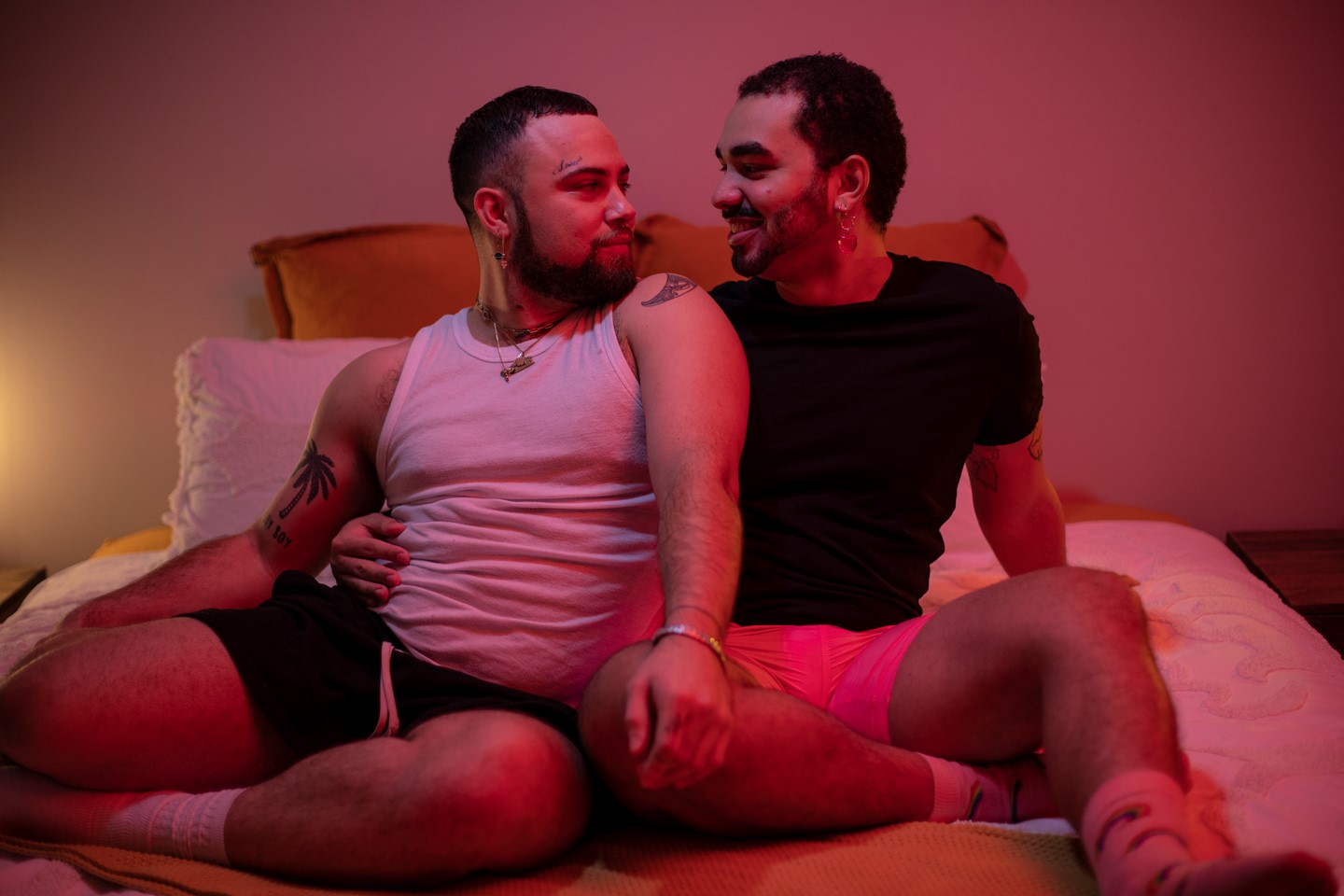Consent
Consent is about making sure everyone in a sexual encounter feels, safe, comfortable and enthusiastic about the activities taking place, to ensure a pleasurable experience for everyone involved.
The Basics
At the most basic level, consent is exactly what the word means – giving permission to be a part of something. But it’s much more than a simple nod or hesitant “yup” or “okay”.
It means asking for what you want and saying no to anything you aren’t into. It also means allowing your partner(s) to do the same, by only taking things further after getting a “Yes!”. This is affectionately knows as enthusiastic consent.
You need to feel good about everything that’s happening, and you need to check in with your partner(s) that they feel good about it too.
Consent is not a ‘one yes fits all’ situation – if you’ve said yes to a particular activity, you still have the right to stop at any point you want, no matter how enthusiastic your previous 'yes' may have been.
If
The direction of things changes to somewhere you don’t want to go
AND/OR
You stop feeling okay with something you have said yes to
AND/OR
Either of you decide you aren’t okay with something that’s happening
AND/OR
You’re ever not sure about whether your partner is consenting
Then:
it’s time to stop.
No one should ever be shamed or made to feel guilty for saying no – it’s all a part of respecting yourself and your partner(s), and keeping each other safe.

How to make sure you're having consensual sex
It definitely requires a conversation - but this conversation doesn't have to be super clinical, you can be sexy with it. This dudebro idea that asking for consent kills the mood is not true; in fact, being asked what you want and asking what others want is really hot.
Are you comfortable getting to the point? Then you might go with:
- Can I kiss you?
- Can I take your top off? What about these shorts?
- Do you want to have sex now?
- Can I do [insert sexy act you'd like to perform]?
Do you like to be a bit more descriptive? Try:
- I think it's really hot to [insert sexy act you're into] - do want to do this with me?
- What are you into? Do you want to do that together?
Remember, consent isn't a one-off - you need to be checking in throughout your encounter. During foreplay you might try:
- Is it okay to kiss you here?
- Do you like this or should I do something else?
- Do you want to slow down?
- How far do you want to go tonight?
If things do progress to some form of penetrative sex, remember to keep checking in with whether everything feels good for each other and that everyone wants to keep going.
- Are you comfortable with this?
- Do you want me to stop?
- Should/can I add some lube?
Consent isn't just a way to keep everyone involved safe - by checking in, adjusting and giving and receiving direction with partners - you're going to have better sex in general.


The legal stuff
Age of consent
For anyone under the age of 16, it is law that they cannot legally consent to any kind of sexual contact. It is illegal for anyone to attempt sexual contact with anyone under 16. These laws are in place to keep people safe.
We’re not saying that if you're under 16, you’re not clever, and that you don’t know what you want - it’s just a fact that young people are more vulnerable to being made to do things they don’t want to do. This law gives you more time to have more experience and understanding under your belt before you are undoing someone else’s.
This also means that if you and your partner are both under 16, it is technically still a crime to have sexual contact. If your activity is reported, police will investigate to see if anyone is being harmed. This is assessed on a case-by-case basis if you are both under 16, whereas with sex between someone over 16 and someone under, it is immediately a chargeable offence.
Under the influence
You also cannot consent to any sexual activity if you are too affected by drugs or alcohol to be able to make informed decisions – no matter how old you are.
Coercion
You also cannot consent if you are forced, threatened or even if there is the implication of force being applied to yourself or another person that would inhibit your ability to say no. You also cannot consent if someone is pretending to be someone else or you are mistaken about who they are.
Sexual activity does not necessarily mean penetrative sex
Remember that consent applies to all sexual activity, not just penetrative sex. You can stop - and be asked to stop - any activity that is considered sexual for you and your partners. If you or your partner don't feel comfortable being touched in a certain way or place, kissed or otherwise interacted with in a way that has a sexual intention, you do not have to consent to it and the other party should stop.
Keeping safe and asking for help
Remember that all of this is about keeping you and your partners safe. If you have had experiences that made you feel unsafe, or if you’ve been made do anything you didn’t want to, there are people you can talk to who will support you and help you contact authorities if necessary.
- Talk to someone at your closest Sexual Health Service – they will have support pathways to help you, these differ from region to region
- Safetotalk.nz – is Aotearoa’s 24/7 helpline for any kind of sexual harm. You can contact them in whatever way feels most comfortable – text, email, phone-call and more. Trained counsellors will be able to speak with you and help support you
- If you feel comfortable speaking to the Police – there is a sexual assault unit that will be able to help you bring a complaint against someone who has harmed you. We understand that this is a big deal though, so we recommend talking to an organisation that can support you in contacting Police and help you through the process


